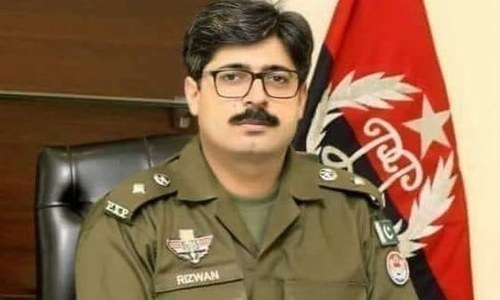The PTI’s battle to depoliticise the bureaucracy and make it more efficient will run into problems that are both expected and unexpected.
Already, from Chakwal to Dera Ghazi Khan, senior bureaucrats have alleged that the PTI’s elected representatives have sought to influence the transfer and postings of local bureaucrats. There also remains a controversial matter before the Supreme Court regarding alleged political interference in the transfer of a senior policeman.
The instances of alleged political interference in the functioning of the police and local bureaucracies could be interpreted as teething problems for the PTI governments at the centre and in the provinces that are relatively inexperienced — or perhaps they are early signs that the PTI’s rhetoric of change is quickly coming undone. At this early point, the PTI governments have a great deal of control over whether or not bureaucratic reforms are implemented. A historic opportunity surely awaits.
What is clear is that a balance will have to be struck between rightful and necessary legal protections for bureaucrats and productivity demands. Prime Minister Imran Khan and senior PTI leaders have fiercely attacked the bureaucracy and police for well-known politicisation and poor performance.
But as early incidents suggest, the bureaucracy and police also need adequate protection from unjust and illegal demands made by the elected representatives and allies of the governing party. Previously in KP, the preferred means of depoliticisation of at least the police force was for Mr Khan to himself select the police chiefs and then back them to do their jobs. But at the national level and with three provincial governments to manage, such personalised control is neither possible nor desirable. What is required is for the institutions of the bureaucracy and the police to be strengthened — to have internal checks and balances and systems of promotion that favour the competent and the professional.
Moreover, professional reforms in the bureaucracy and police must be accompanied by awareness programmes for the public and elected representatives too. One of the reasons why the general public is often easily exploited by local bureaucrats and the police is a lack of awareness of the rules and the law.
As for elected representatives, especially the so-called electables, whose very attraction to the voter is premised on access to the police and local bureaucracy, there is a need for sustained awareness campaigns to be conducted.
Too often, an incoming government promises great positive change, but that commitment is easily outlasted by status quo elements within the government itself. Prime Minister Khan has both promised sweeping reforms and asked for some time for positive change to become apparent. That is a reasonable request. The bureaucracy and the police forces should also look to the PTI’s promise as an opportunity instead of a threat. The country needs and deserves a better police and bureaucracy.
Published in Dawn, September 6th, 2018














































